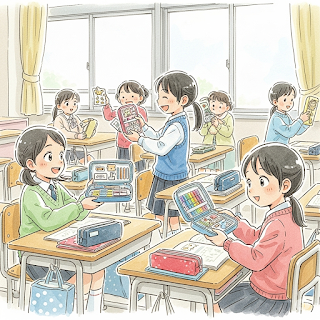Japanese Vending Machines – 日本の自動販売機

Japanese Vending Machines – 日本の自動販売機 Scene Description – シーンの説明 On a busy city street, various vending machines offer cold drinks, snacks, and even fresh flowers. People stop briefly to choose and purchase quickly, enjoying the convenience and variety these machines provide. Everyday Japanese Expressions – 自然な会話と表現 「この自動販売機は種類が豊富ですね。」 Kono jidōhanbaiki wa shurui ga hōfu desu ne. – “This vending machine has a wide variety, doesn’t it?” 「冷たい飲み物を買いたいです。」 Tsumetai nomimono o kaitai desu. – “I want to buy a cold drink.” 「お釣りを忘れないでくださいね。」 Otsuri o wasurenaide kudasai ne. – “Please don’t forget your change.” 「24時間いつでも利用できるのが便利です。」 24-jikan itsudemo riyō dekiru no ga benri desu. – “It’s convenient that you can use it anytime, 24 hours a day.” Cultural Points and Expression Background 利便性の高さ – High Convenience Japan’s vending machines are famous for their accessibility, offering products anytime and anywhere. 多様な商品展開 – Varie...















